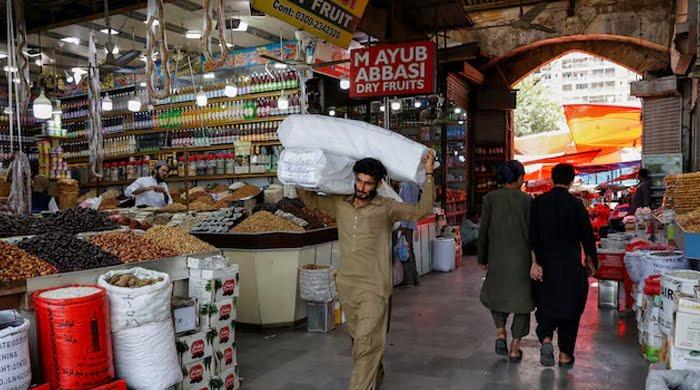'This Azaadi movement by Kashmiris will not go away'
'Kashmiris have waited for too long. It is time for Delhi to read the writing on the wall,' writes Wasim Khalid
May 01, 2017
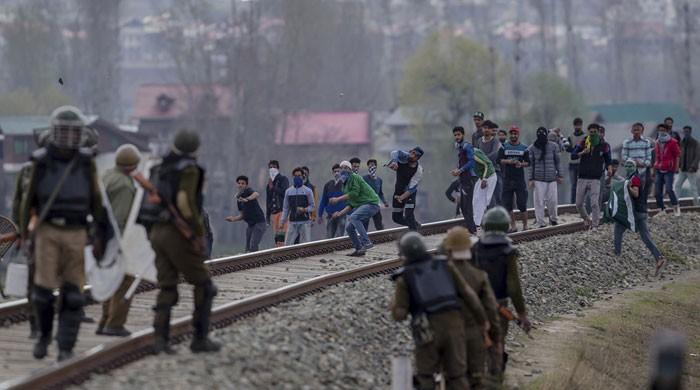
On April 9, while covering the by-elections held in Srinagar to fill a seat in India's lower house of the parliament, I stopped at a polling booth in the Beerwah area of the Budgam district. The voting booth, housed in a government school, was deserted. Its only occupants were Indian paramilitary personnel and the polling staff.
Outside the booth, polling agents of political parties basked nonchalantly in the spring sunshine as the voters stayed home. Their leisure was, however, short lived. Stones, flung by pro-freedom protesters, landed on the corrugated tin roof of the school. Both the members of the paramilitary and the agents ran for safety.
The war had begun. On the streets, young men and women shouted pro-freedom slogans. They fought, the Indian police and paramilitary, with stones while the law enforcement agencies responded with live bullets, pellets, and teargas canisters.
Farooq Ahmad, the polling agent for the National Conference (NC), the opposition party, said that the low turnout was because people do not trust politicians close to India. "The 2016 turmoil (pro-freedom uprising) exposed them," Ahmad explains, "(The Chief Minister) Mehbooba Mufti said she will end the suffering. But when she came to power, she doubled it. Similarly, the NC, when ruling in 2008 and 2010, did the same thing. How can people trust them now?"
The trust, which Ahmad was referring to, is the policy of pacification adopted by India over the past 70 years, using pro-Indian parties in the region. The crux of this policy has remained to obfuscate the political reality of Kashmir, therefore, the yearning to live a dignified life free from India's military occupation.
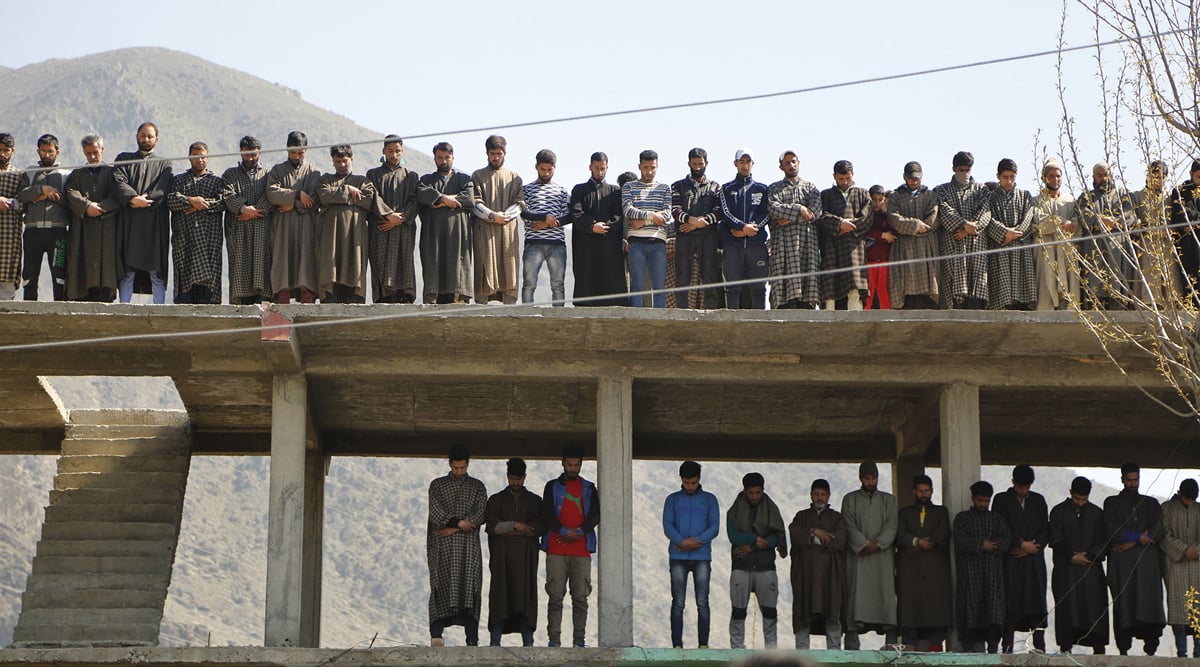
Kashmiri villagers offer prayers during the funeral of Umer Farooq, a civilian killed by Indian forces in Indian Occupied Kashmir, on April 10, 2017.—AP Photo
In the last 30 years, to prolong and strengthen this policy, the Indian state has extended support to local pro-Indian parties and muddied Kashmiris' political aspirations of Azaadi (freedom) by diverting attention to infrastructural development, peace, confidence building measures, and so on. This helps them hide the military occupation and superimpose it with the narrative of peace, development, and tourism.
The militancy, which is the face of the Kashmir rebellion, was reduced to its lowest in the aftermath of the 9/11 attacks. Then, in 2008, Kashmiris resorted to a broad-based uprising to reclaim land, which they deemed was illegally transferred to the Hindu Shrine board running the Amarnath Yatra, an annual pilgrimage by Indian Hindus.
The activities of the Amarnath Shrine Board are seen as state within state in the region. The Board is a vehicle of rightwing Hindutva forces to make settlements in Kashmir on the pattern of Israel.
The people rose again in 2010 for four months, demanding freedom from India, which claimed lives of over 120 persons after police and Indian forces fired upon the protesters. At that time, the NC was ruling Kashmir as well as condoning the brutal crackdown.
Since then, pro-freedom protests continue to erupt in intervals. The recent uprising began last July, in the aftermath of the killing of iconic rebel commander Burhan Wani.
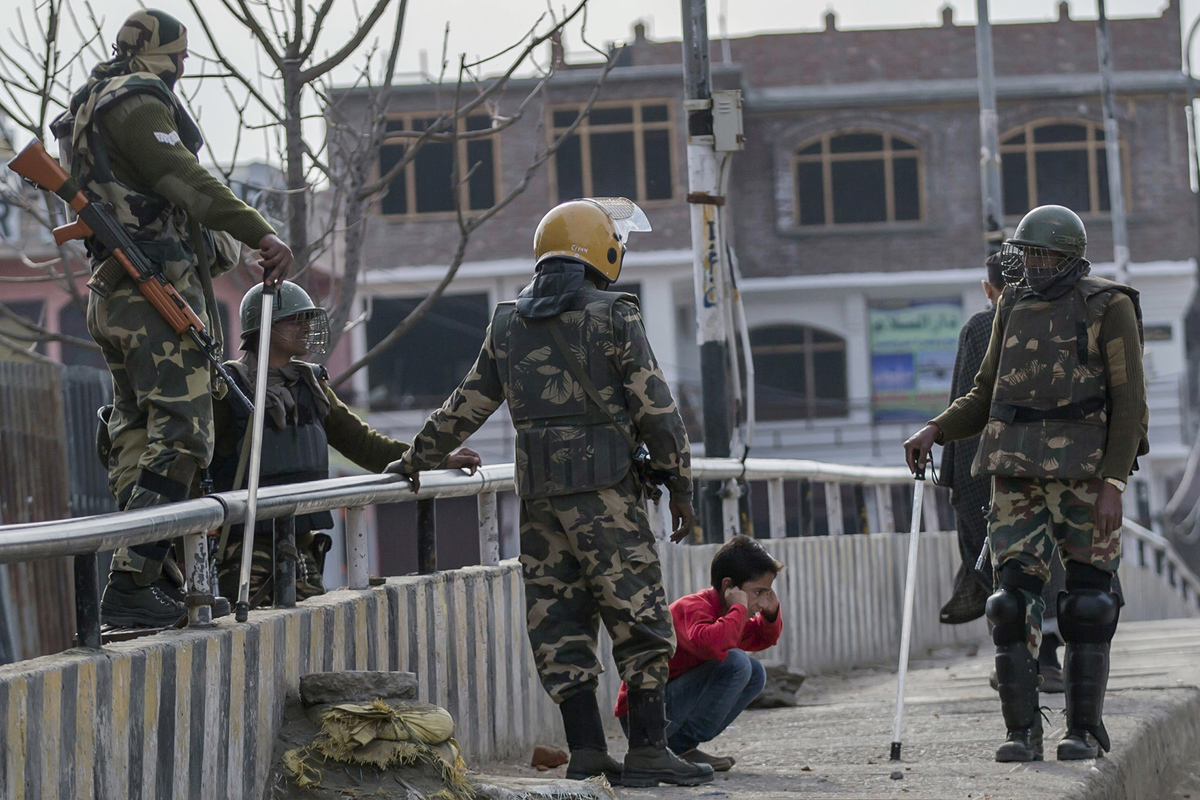
In this March 29, 2017, photo, Indian paramilitary soldiers force a Kashmiri child to perform sit-ups while holding his ear lobes before letting him go during a strike in Srinagar.—AP Photo
In the last nine months, according to official data, over 15,000 Kashmiris have been injured, and 90 killed. Upward to 1,100 are fully or partially blinded due to pellets fired by Indian forces. Thousands are behind bars. All this is happening under the government of the People's Democratic Party (PDP), ruling in coalition with the Hindu right wing Bhartiya Janata Party (BJP).
Both the NC and the PDP have been exposed. Instead of aiding change in the existing political reality, they are abetting the military and police to brutally handle Kashmir.
The Indian constituency in Kashmir stands delegitimised. Nobody believes in the pro-Indian politics, the state machinery; the grey area has disappeared. People in the street now see everything in black and white. The hatred toward India is intensifying. Anger rules the streets. There is only one demand now, for freedom.
Also read: Guns, stones, and now rap music – Kashmir continues to resist India
Young men and women, who were born after 1990's and bred under the militarization, death, and destruction are highly politicised, well educated, and have conquered the fear of death. Perhaps, that is why they have been putting their lives in danger to break the heavy blanket of military cordons to save the rebels. Kashmiris now celebrate martyrdom over an "undignified life".
The Azaadi narrative has become supreme. Never in the history of Kashmir have students from schools and colleges come out and demanded the right to self-determination. And their voice is growing louder and louder.
Pacification won't work. Guns won't silence them.
In the next few days, maybe things will cool down, but unlike the past, this Azaadi movement is not going away. If New Delhi turns a blind eye to it, more ferocious protests will erupt.
Kashmiris have waited for too long. It is time for Delhi to read the writing on the wall. It is time for them to solve the Kashmir dispute, taking Kashmiris and Pakistan along.
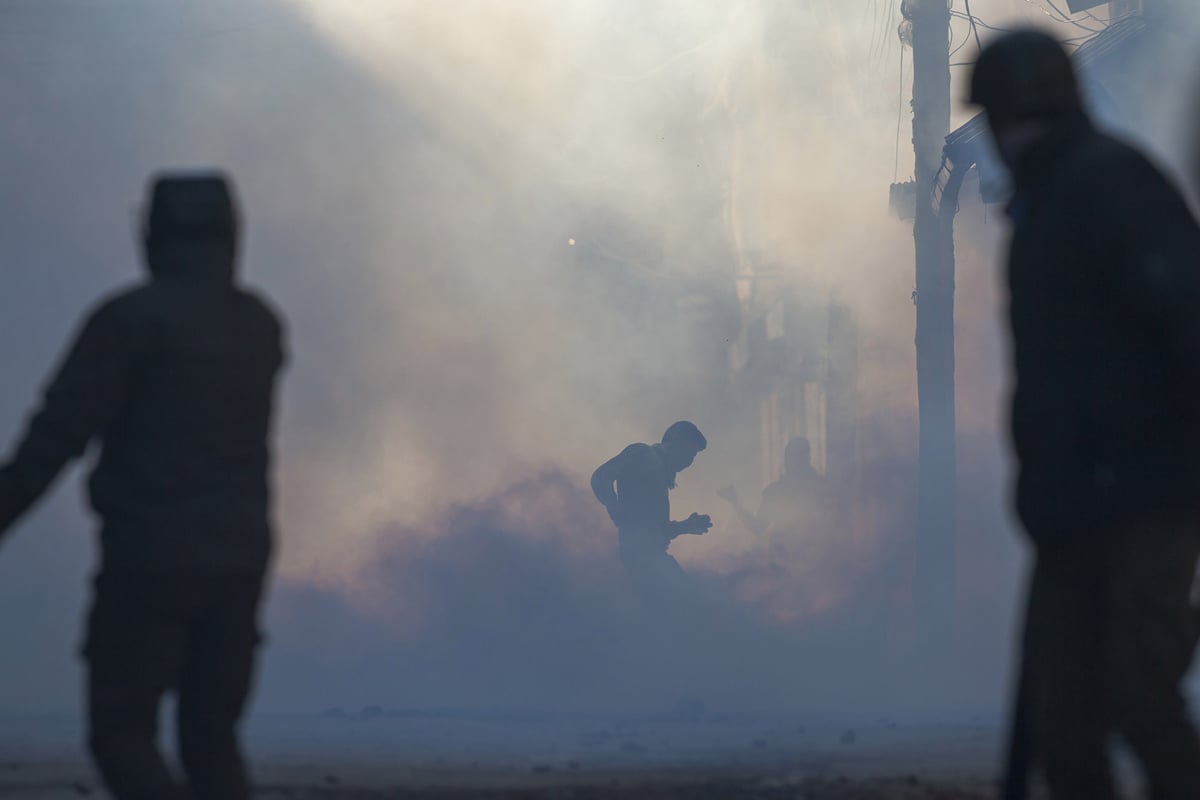
Tear gas smoke engulfs a Kashmiri protester in Srinagar on February 10, 2017.—AP Photo
—Khalid is a Srinagar-based journalist. He has been a Reuters fellow at the University of Oxford, UK. He can be contacted on [email protected]




